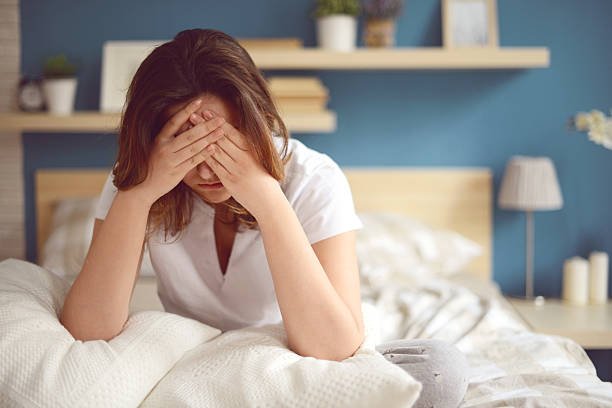How to Get a Better Night’s Sleep in 4 Easy Steps
A lot of us have made the resolution to sleep better since we know that it will improve a lot more than simply the appearance of the bags under our eyes.
Our mental health, energy levels, immunity, and ability to control our weight are just some of the areas that may benefit from consistent adherence to the recommended amount of sleep for adults, which is 7-9 hours each night according to the Sleep Foundation.
Michael A. Grandner, Ph.D., M.T.R. is the head of the Sleep and Health Research Program at the University of Arizona College of Medicine. We had a conversation with him to find out what we can do to assist enable higher sleep quality in the new year.
He shared some intriguing insights on how the routines we do every day might alter the quality of sleep we get. Here are his four suggestions on how to get a more restful night’s sleep.
A Guide to Getting a Better Night’s Sleep
Put Off Drinking That First Cup of Coffee in the Morning
Grandner suggests that if you want a true pick-me-up from your coffee, you should wait at least an hour after waking up before drinking it. We are aware that this piece of advice may hurt a little bit.
“Sometimes individuals use caffeine first thing in the morning to aid with their ‘waking up’ process, although in most cases, this occurs naturally,” explains Grandner. “However, this is not the case for everyone.”
“When we awaken, we immediately feel incredibly lethargic due to a phenomenon known as “sleep inertia,” which occurs naturally. If we get up and start moving about, though, this should go away very quickly—perhaps within ten to thirty minutes.
If you start drinking coffee immediately away, you will begin to feel better, but this is not due to the coffee itself; rather, it is due to the natural drop in sleep inertia that occurs when you start drinking coffee.”
Because the benefits of caffeine don’t start to kick in until 20 to 40 minutes, according to Grander, using coffee as a quick pick-me-up is more of an illusion than anything else. Caffeine takes that long to kick in.
Waiting until late morning, about 9 or 10 a.m., before pouring yourself a cup of coffee would, according to him, cause the effects of the coffee to set in just as you’re experiencing an afternoon slump and clear up before it may interfere with your night.
Give Some Thought to Intermittent Fasting
Not only may putting off eating breakfast until later in the morning help you get a better night’s rest, but doing so might also be beneficial for sipping coffee later in the morning. However, it is not necessary for it to be as stringent as some of the other methods of intermittent fasting that you may have heard about.
According to Grandner, “the evidence is growing suggesting we should confine our food consumption to a 10-12 hour window from the first meal to the last bite,” and this window should begin and end at the same time.
The popular 16:8 intermittent fasting method, in which one eats within an eight-hour window and then fasts for 16 hours, is vastly different from the way that most of us eat; however, it wouldn’t take too much effort to fit your eating within 10–12 hours each day. This method of fasting is called “intermittent” fasting.
This may include eating supper a bit earlier than normal or locking the kitchen rather than depending on late-night snacks as a means of satisfying hunger. Lisa Valente, M.S., RD, adds, “This does not imply that you should hold off on eating your first meal until midday.
A ten-hour window may be from nine o’clock at night to seven o’clock in the morning, which you may be close to achieving naturally.”
According to Grandner, “the majority of Americans nibble at night, and this is a concern for a lot of reasons.” “To begin, the kinds of meals that we want the most tend to be those that are rich in calories but low in nutrients.
This is a particularly concerning issue since consuming calories at night is associated with an increased risk of disrupting metabolic processes and leading to weight gain.
Additionally, eating heavy meals late at night might lead to acid reflux, which in turn can make it difficult to fall or stay asleep.”
Stay away from alcohol after midnight.
Although drinking a glass of wine with dinner shouldn’t be an issue and, according to Grandner, may even be beneficial for your health, he recommends avoiding alcohol in the hours leading up to night.
“Alcohol may make it easier to fall asleep, but it lowers the quality of sleep you get and can even lead you to have lighter sleep or wake up more often. People who are more susceptible to the effects of alcohol or those who have more than one or two drinks in the hours before night are more likely to experience this.”
Does this ring a bell? It is not uncommon for our go-to bottle of wine to put us to sleep, only to wake us up hours sooner than normal or lead us to have a restless sleep once it has worn off.
Avoid drinking alcohol in the hours leading up to bedtime; instead, switch to water and have your evening drink earlier in the day. This can help you sleep better.
Establish a morning and evening routine that is suited to your lifestyle and can be maintained over time
According to Grandner, getting a restful night’s sleep begins the moment you open your eyes in the morning. It is his recommendation that, as soon as you open your eyes in the morning, you get out of bed and get the day started; you should not stay in bed or play on your phone.
According to Grandner, the only appropriate activities to take place in your bed are sleeping and engaging in sexual activity. It would seem that the button to snooze the alarm has been a threat the entire time it has been used.
Maintaining a consistent circadian rhythm throughout the day requires a commitment to a routine that should be followed consistently. In addition to getting out of bed immediately every morning, Grander recommends exposing oneself to as much natural light and moving about as much as possible over the course of the day, as well as allowing yourself some time to wind down before climbing beneath the sheets.
“People don’t give themselves enough time to wind down, which is one of the major errors I see other people make.
The busier we are throughout the day, the more time we will need in the evenings to unwind and be ready for bed.”
If you want to establish a habit that will help you get better sleep, try putting away your phone at least half an hour before you go to bed and reading a book instead of checking your email or browsing through social media.
You might also choose to watch just one episode of your favorite program on Netflix rather than five in order to give yourself the opportunity to stretch.
The Crux of the Matter
Both caffeine and alcohol consumption seem to play significant roles in the quality of sleep that we get, and optimizing the way that we take our morning coffee and our nightcap maybe two simple ways to have a better night’s rest. In addition, establishing a sleep schedule that includes a streamlined morning and nighttime routine can seem daunting at first, especially if you have irregular work hours or a family full of members with different sleep schedules to care for; however, research shows that doing so can have some significant positive effects on our overall health.
When it comes to intermittent fasting, it is crucial to discover eating habits that are actually sustainable for your unique way of life. This is especially true if you want to do the fasting for an extended period of time.
Eating inside a 12-hour window might be a suitable choice for you if you have a similar daily routine or if you have a tendency to graze late at night, but you shouldn’t be too hard on yourself if you eat supper an hour or two later than planned.
Concentrate on providing enough nourishment to your body with nutritious meals, as many of the nutrients, such as magnesium, will assist in the control of your sleeping patterns.




